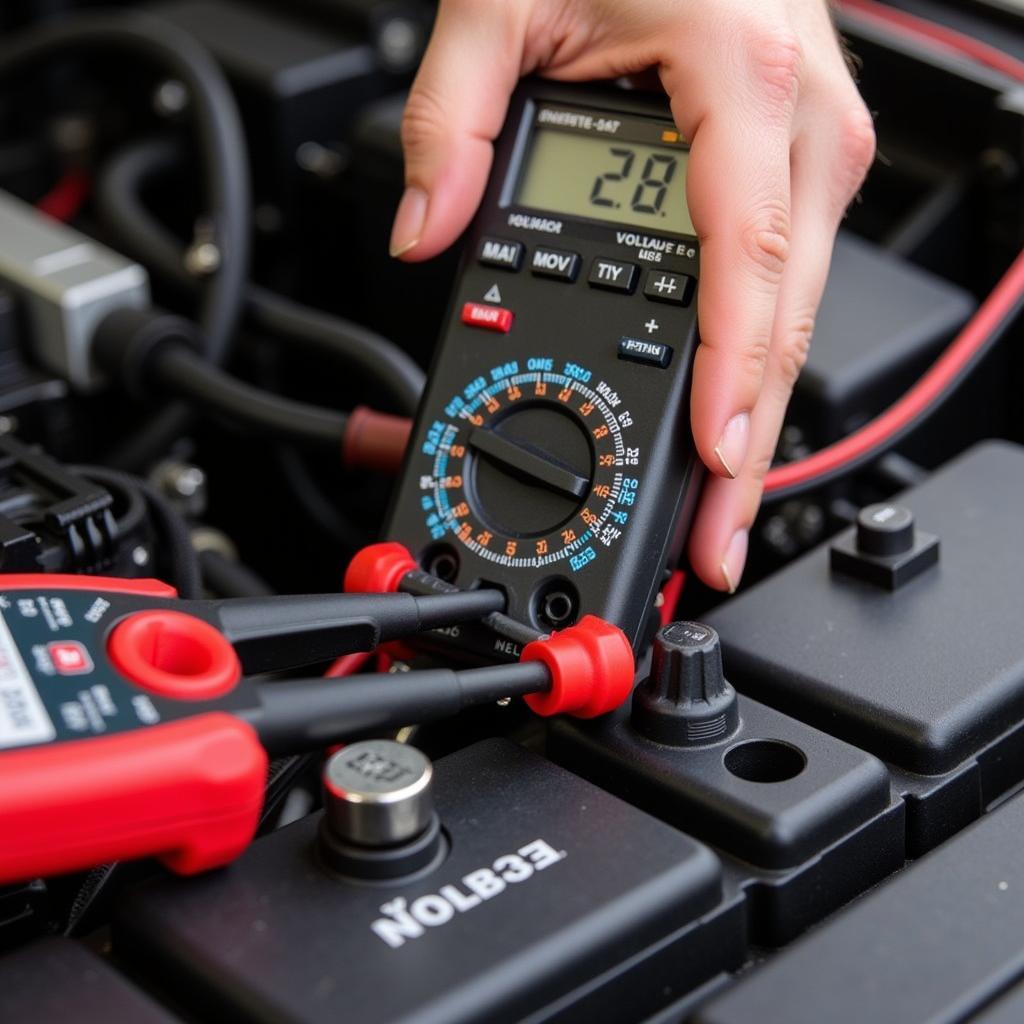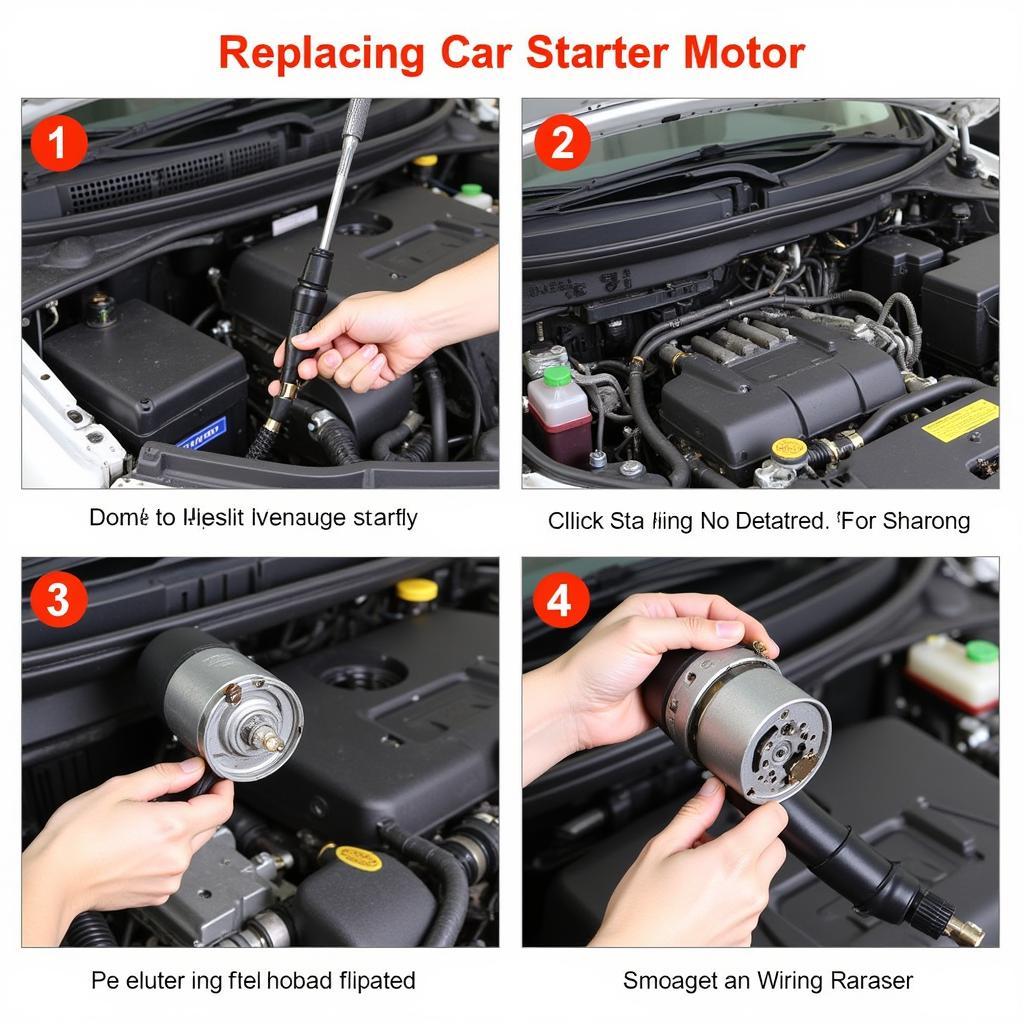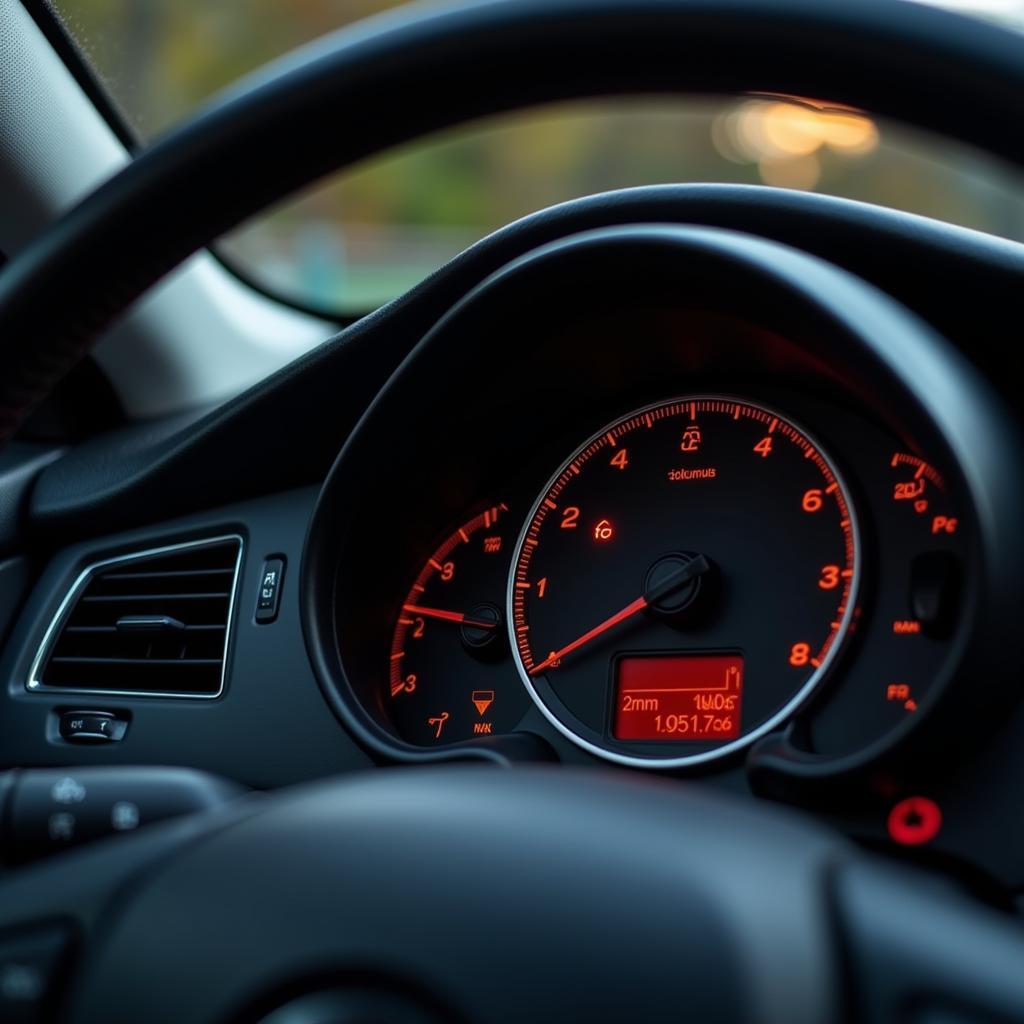A clicking sound when you try to start your car, followed by the engine refusing to turn over, is a frustrating and common problem. This issue can stem from a variety of sources, ranging from a simple dead battery to more complex starter or electrical system malfunctions. This article will guide you through the process of diagnosing and resolving the “clicking and car won’t start” issue, providing you with the knowledge to get your car back on the road.
Understanding the Clicking Sound: Why Won’t My Car Start?
The clicking sound you hear is usually originating from the starter solenoid, a small but crucial component responsible for engaging the starter motor. When you turn the key, the solenoid receives power and activates a plunger, pushing a gear forward to connect the starter motor to the engine’s flywheel. This action cranks the engine, allowing it to start. A clicking sound indicates the solenoid is receiving power but lacks enough current to engage the starter motor fully. This could be due to several reasons, the most common being a weak or dead battery. However, other issues, such as corroded battery terminals, a faulty starter, or a problem with the ignition switch, can also cause this frustrating clicking sound.
After the opening paragraph, you might find valuable information related to battery problems in articles like signs that my car battery is dead.
Diagnosing the Problem: Car Clicking But Not Starting
Identifying the exact cause of the clicking sound requires a systematic approach. Begin by checking the most obvious culprit: the battery.
Checking the Battery and Connections
A weak battery is the most frequent cause of a car clicking but not starting. Use a multimeter to check the battery voltage. A fully charged battery should read around 12.6 volts. Anything significantly lower indicates a weak or dead battery. Also inspect the battery terminals for corrosion. Clean them with a wire brush and baking soda solution if necessary. Loose or corroded connections can impede current flow, leading to the clicking sound.
Testing the Starter
If the battery checks out, the next step is to test the starter. This often requires a helper. While someone else turns the key to the “start” position, listen closely to the starter. A single, loud click suggests a faulty starter solenoid. Multiple rapid clicks may point to a failing starter motor.
 Checking Car Battery Voltage with Multimeter
Checking Car Battery Voltage with Multimeter
Inspecting the Ignition Switch
Although less common, a faulty ignition switch can also prevent the car from starting. When the ignition switch is turned to the “start” position, it sends power to the starter solenoid. A malfunctioning switch may not supply sufficient power, resulting in the clicking sound. Testing the ignition switch often requires specialized tools and knowledge, so consulting a professional mechanic is recommended.
Similar to bad battery voltage car, a clicking sound often points towards an electrical issue.
Solutions: How to Fix a Clicking Car
Once you’ve identified the source of the problem, you can take the appropriate steps to fix it.
Jump Starting or Replacing the Battery
If the battery is dead or weak, jump-starting the car might be enough to get it running. However, if the battery is old or has been repeatedly discharged, replacement is the best option. Ensure you choose a battery with the correct specifications for your vehicle.
Replacing the Starter
A faulty starter or solenoid typically requires replacement. While this can sometimes be a DIY project, it often involves working in tight spaces and requires some mechanical aptitude.
Repairing or Replacing the Ignition Switch
If the ignition switch is the culprit, repairing or replacing it is usually best left to a qualified mechanic. This task often involves complex wiring and requires specific tools.
 Replacing a Car Starter Motor
Replacing a Car Starter Motor
You can learn more about addressing a car that won’t start, even if it’s not the battery, in this helpful resource: car not starting not battery.
Preventing Future Clicking and Starting Issues
Regular maintenance can help prevent future starting problems. Keep your battery terminals clean and check the battery’s voltage periodically. Having your starter and alternator tested during routine service checks can also help identify potential issues before they escalate.
Just as with a battery tender dead battery, preventing issues is often easier than solving them.
Conclusion: Getting Your Car Started Again
A clicking sound when trying to start your car can be a sign of several different problems, most commonly a dead or weak battery. By following the diagnostic steps outlined in this article, you can pinpoint the cause of the issue and implement the appropriate solution. While some fixes, such as jump-starting or cleaning battery terminals, are simple DIY tasks, others, such as replacing the starter or ignition switch, may require professional assistance. Regular car maintenance can help prevent these problems and ensure your car starts reliably every time.
 Car Starting Successfully After Repair
Car Starting Successfully After Repair
This relates closely to determining if you have a bad battery or alternator. Understanding the difference is key.
FAQ
-
What does a rapid clicking sound when starting the car mean? This usually indicates a weak battery or a problem with the starter motor itself.
-
Can I drive my car after jump-starting it with a dead battery? Yes, but you should drive for at least 30 minutes to allow the alternator to recharge the battery. It’s best to get the battery tested and potentially replaced.
-
How long does a car starter typically last? The lifespan of a starter varies, but they generally last between 5 and 10 years.
-
Can extreme temperatures affect car starting? Yes, both extreme heat and cold can affect battery performance and make it harder to start the car.
-
What should I do if I’ve tried everything and my car still won’t start? At this point, it’s best to contact a qualified mechanic for a thorough diagnosis and repair.
-
Is it safe to jump-start a car with a completely dead battery? Yes, as long as you follow the proper jump-starting procedure and ensure the connections are secure.
-
How can I prevent my car battery from dying? Regularly driving your car, ensuring all electrical accessories are off when the engine isn’t running, and having your battery tested periodically can help prevent it from dying prematurely.
